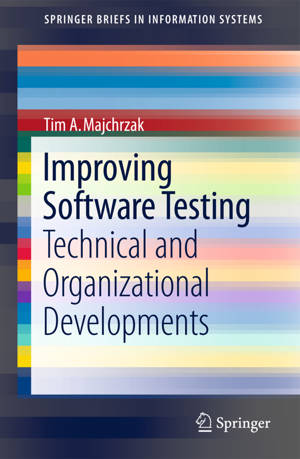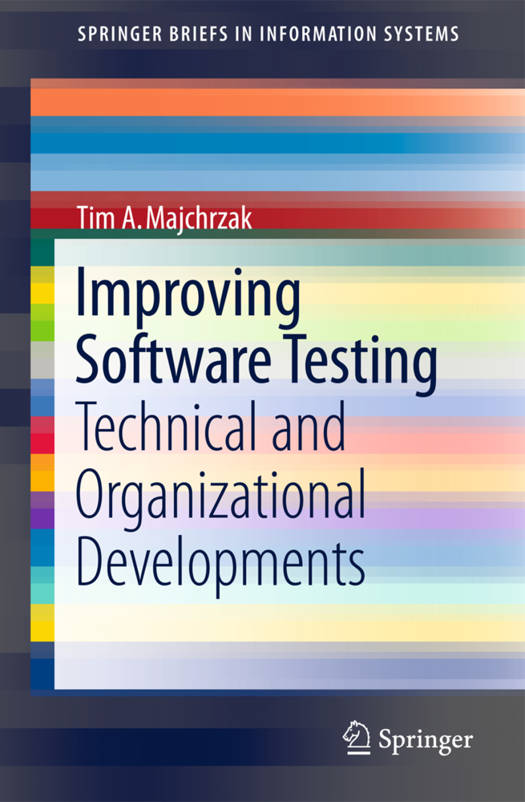
- Afhalen na 1 uur in een winkel met voorraad
- Gratis thuislevering in België vanaf € 30
- Ruim aanbod met 7 miljoen producten
- Afhalen na 1 uur in een winkel met voorraad
- Gratis thuislevering in België vanaf € 30
- Ruim aanbod met 7 miljoen producten
Zoeken
€ 52,95
+ 105 punten
Omschrijving
Software is continuously increasing in complexity. Paradigmatic shifts and new development frameworks make it easier to implement software - but not to test it. Software testing remains to be a topic with many open questions with regard to both technical low-level aspects and to the organizational embedding of testing. However, a desired level of software quality cannot be achieved by either choosing a technical procedure or by optimizing testing processes. In fact, it requires a holistic approach.This Brief summarizes the current knowledge of software testing and introduces three current research approaches. The base of knowledge is presented comprehensively in scope but concise in length; thereby the volume can be used as a reference. Research is highlighted from different points of view. Firstly, progress on developing a tool for automated test case generation (TCG) based on a program's structure is introduced. Secondly, results from a project with industry partners on testing best practices are highlighted. Thirdly, embedding testing into e-assessment of programming exercises is described.
Specificaties
Betrokkenen
- Auteur(s):
- Uitgeverij:
Inhoud
- Aantal bladzijden:
- 160
- Taal:
- Engels
- Reeks:
Eigenschappen
- Productcode (EAN):
- 9783642274633
- Verschijningsdatum:
- 4/02/2012
- Uitvoering:
- Paperback
- Formaat:
- Trade paperback (VS)
- Afmetingen:
- 156 mm x 234 mm
- Gewicht:
- 258 g

Alleen bij Standaard Boekhandel
+ 105 punten op je klantenkaart van Standaard Boekhandel
Beoordelingen
We publiceren alleen reviews die voldoen aan de voorwaarden voor reviews. Bekijk onze voorwaarden voor reviews.











